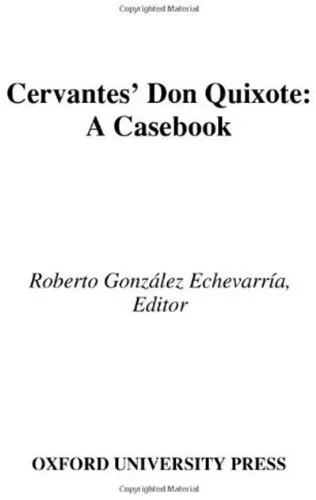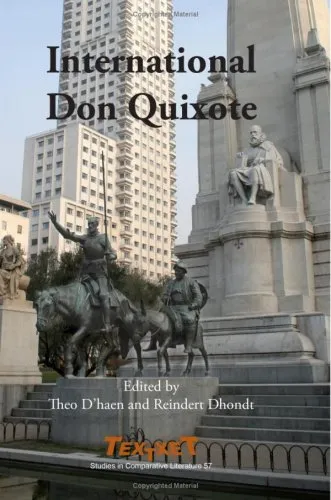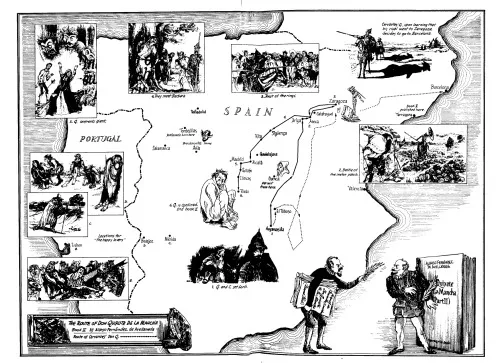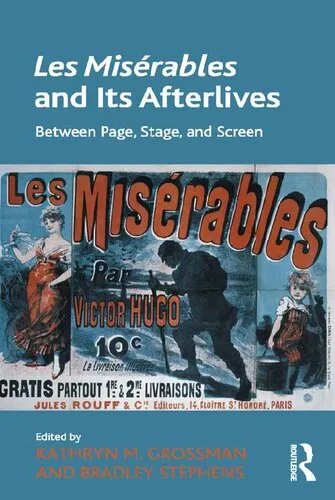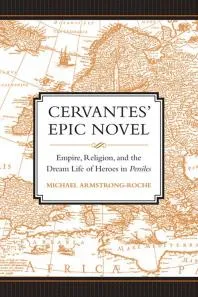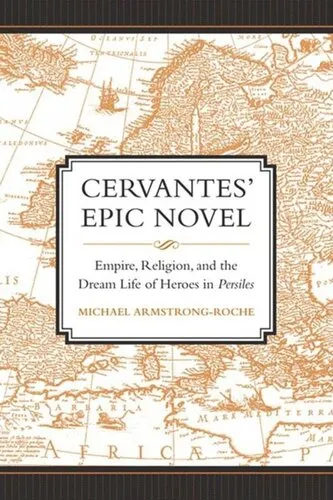Cervantes' Don Quixote: A Casebook (Casebooks in Criticism)
4.0
Reviews from our users

You Can Ask your questions from this book's AI after Login
Each download or ask from book AI costs 2 points. To earn more free points, please visit the Points Guide Page and complete some valuable actions.Related Refrences:
Persian Summary
Cervantes' Don Quixote: A Casebook (Casebooks in Criticism)
Dive into the world of one of literature's most profound works, "Don Quixote," with this casebook that explores the rich tapestry of themes, characters, and the cultural impact of Cervantes' masterpiece.
Detailed Summary of the Book
Cervantes' "Don Quixote" is not just a story; it is an odyssey through the realms of reality and illusion, a journey of a man who dreams to reshape the world according to his own ideals. This casebook offers a comprehensive introduction to "Don Quixote," highlighting its narrative structure, character development, and the interplay between truth and fiction. Exploring the dual nature of Don Quixote and Sancho Panza, the text delves into the philosophical and existential questions raised by Cervantes, examining the dynamic between heroism and folly, idealism and pragmatism.
Through careful analysis, the casebook illustrates how "Don Quixote" critiques contemporary Spanish society and reflects universal human concerns. It examines the historical context in which Cervantes wrote, shedding light on how his personal experiences and the social milieu of the Spanish Golden Age infused his work with relevance and resonance.
Key Takeaways
- The nature of reality vs. illusion: "Don Quixote" serves as a reflection on how personal perceptions shape one's reality.
- Cervantes' innovative narrative style: His use of metafictional techniques was groundbreaking, enriching the narrative's complexity.
- Exploration of individualism and identity: The characters in "Don Quixote" grapple with their roles and self-conceptions, offering insights into human identity.
- The enduring power of dreams and ideals: The story epitomizes the conflict between dreams versus societal constraints.
Famous Quotes from the Book
"When life itself seems lunatic, who knows where madness lies?" - This thought-provoking line encapsulates the theme of madness versus sanity as seen through the eyes of Don Quixote and his adventures.
"Too much sanity may be madness and the maddest of all, to see life as it is and not as it should be." - It reflects the core of the narrative: the tension between stark reality and ennobling dreams.
Why This Book Matters
Cervantes' "Don Quixote" is more than a mere tale of chivalric folly; it is a seminal text that has influenced countless works of literature, art, and philosophy. This casebook emphasizes why Cervantes' creation remains a critical subject of study. By dissecting the intricacies of the text, it reveals how "Don Quixote" embodies the quest for personal meaning in an uncertain world.
The significance of "Don Quixote" extends beyond its narrative, as it represents a pivotal moment in literary history. It marks the birth of the modern novel, integrating sophisticated narrative techniques and exploring themes of social, political, and cultural relevance. Through its critical essays and insightful commentary, this casebook enriches our understanding of why "Don Quixote" continues to be a cornerstone of global literature, inspiring enduring discussions on the essence of humanity, society, and dreams.
Free Direct Download
You Can Download this book after Login
Accessing books through legal platforms and public libraries not only supports the rights of authors and publishers but also contributes to the sustainability of reading culture. Before downloading, please take a moment to consider these options.
Find this book on other platforms:
WorldCat helps you find books in libraries worldwide.
See ratings, reviews, and discussions on Goodreads.
Find and buy rare or used books on AbeBooks.
1445
بازدید4.0
امتیاز0
نظر98%
رضایتReviews:
4.0
Based on 0 users review
Questions & Answers
Ask questions about this book or help others by answering
No questions yet. Be the first to ask!
